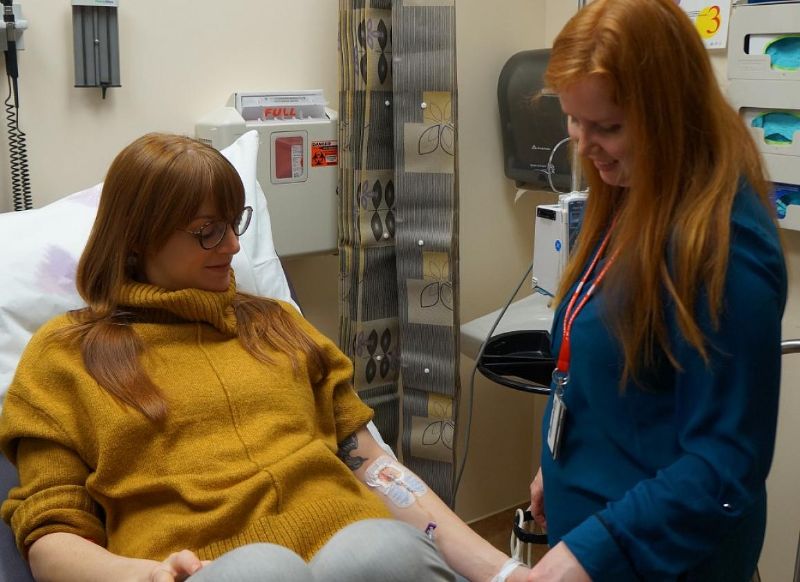
NIH’s Phase I malaria trial of monoclonal antibody opens enrolment
A Phase I clinical trial of monoclonal antibody (mAb) CIS43LS against malaria started the enrolment of healthy adults at the National Institutes of Health (NIH) Clinical Center in Bethesda, Maryland, US.
The study is funded by NIH’s National Institute of Allergy and Infectious Diseases (NIAID). It is designed to enrol up to 73 participants aged 18 to 50 with no history of malaria.

Discover B2B Marketing That Performs
Combine business intelligence and editorial excellence to reach engaged professionals across 36 leading media platforms.
The majority of participants will be exposed to mosquitoes carrying the malaria parasite at the Walter Reed National Military Medical Center following the administration of CIS43LS.
Acceleron Pharma’s Phase II PAH trial meets goals
Acceleron Pharma reported that the Phase II PULSAR study of sotatercept achieved its primary and major secondary endpoints for the treatment of pulmonary arterial hypertension (PAH).
Sotatercept is an investigational, selective ligand trap for the TGF-beta superfamily. It is intended to rebalance bone morphogenetic protein receptor type II (BMPR-II) signalling, a key molecular driver of PAH.
The Phase II study was conducted to assess the safety and efficacy of a 0.3mg/kg and 0.7mg/kg subcutaneous dose of the drug given every 21 days in combination with stable background therapies specific to PAH.

US Tariffs are shifting - will you react or anticipate?
Don’t let policy changes catch you off guard. Stay proactive with real-time data and expert analysis.
By GlobalDataSanofi reports positive data for rare disease drug olipudase alfa
Sanofi reported positive results from the ASCEND and ASCEND-Peds trials of olipudase alfa in patients with acid sphingomyelinase deficiency (ASMD)/Niemann-Pick disease, a rare and progressive disorder.
Olipudase alfa is an enzyme replacement therapy that is said to be the first of its kind in late-stage development to treat ASMD, which currently lacks approved therapies.
The randomised Phase II/III ASCEND trial was conducted in 36 adult patients at 24 sites across 16 countries. Participants were given intravenous olipudase alfa every two weeks at a dose of up to 3mg/kg over 52 weeks.
Roche’s Tecentriq fails in Phase III urothelial cancer study
Results from the Phase III IMvigor010 clinical trial revealed that Roche’s Tecentriq (atezolizumab) did not meet the primary endpoint as an adjuvant monotherapy in muscle-invasive urothelial cancer (MIUC) patients.
Tecentriq is an anti-PD-L1 monoclonal antibody designed to allow T-cell activation. The cancer immunotherapy holds approvals to treat lung, urothelial and breast cancers.
The open-label, randomised, controlled IMvigor010 trial compared the safety and efficacy of Tecentriq to observation in 809 patients at high-risk for recurrence after resection.
Research suggests more than half of US trials do not report findings
New research conducted by British researchers revealed that only 41% of clinical trials sponsors reported results within a year of the trial’s completion in the US.
At least one in every three trials (36%) went unreported, according to findings published in The Lancet.
The study found that trials with non-industry sponsors such as universities, governments, and hospitals are more likely to breach the rules than those sponsored by the industry.
Spring Bank halts development of inarigivir for hepatitis B
Spring Bank Pharmaceuticals stopped the development of inarigivir soproxil to treat chronic hepatitis B virus (HBV) after a patient died in its Phase IIb CATALYST trial.
The company said that the decision has been made to ensure the safety of patients because unexpected serious adverse events occurred in the development programme.
Inarigivir is an oral, selective immunomodulator that attaches to the cellular proteins retinoic acid-inducible gene 1 (RIG-I) to block viral replication. The drug also works by triggering intracellular interferon signalling pathways against the virus.
Merck reports mixed results in small cell lung cancer study
Merck announced that the Phase III KEYNOTE-604 trial met with mixed results fulfilling one of its dual primary endpoints.
The study involved assessing the efficacy of cancer drug Keytruda in combination with chemotherapy (etoposide plus cisplatin or carboplatin) for treating extensive-stage small cell lung cancer (ES-SCLC).
It identified a significant improvement in progression-free survival (PFS) in patients treated with Keytruda in combination with chemotherapy over patients undergoing chemotherapy alone.
Eli Lilly and Incyte report atopic dermatitis data of baricitinib
Eli Lilly and Incyte reported positive data from the Phase III BREEZE-AD4 clinical trial performed to assess a combination of baricitinib and topical corticosteroids (TCS) for moderate to severe atopic dermatitis (AD).
The trial involved adult patients who did not experience adequate response with, were intolerant to or had contraindication to cyclosporine treatment.
Marketed as Olumiant, baricitinib is an oral inhibitor of Janus kinase (JAK). The drug holds approval to treat moderately to severely active rheumatoid arthritis in certain adults.
AstraZeneca reports positive data for Brilinta in stroke patients
AstraZeneca reported that the Phase III THALES clinical trial of Brilinta (ticagrelor) has met its primary endpoint in patients who had a minor acute ischaemic stroke or high-risk transient ischaemic attack (TIA).
The trial assessed a 90mg twice-a-day dose of the drug given with aspirin for 30 days in more than 11,000 stroke patients in the 24 hours prior to the initiation of treatment.
Brilinta is an oral, reversible, direct-acting antagonist of the P2Y12 receptor. The drug is designed to prevent platelet activation and its use with aspirin was observed to mitigate the risk of major adverse CV events in patients with acute coronary syndrome (ACS) or a myocardial infarction (MI) history.
Ipsen temporarily stops palovarotene dosing in FOP trials
Ipsen paused the dosing of patients in Phase II extension and Phase III clinical studies of palovarotene for the treatment of fibrodysplasia ossificans progressiva (FOP).
Palovarotene is a retinoic acid receptor γ (RARγ) agonist intended to address rare and debilitating bone diseases, such as FOP and multiple osteochondromas (MO).
Ipsen gained the drug during the acquisition of Clementia Pharmaceuticals in April last year.





